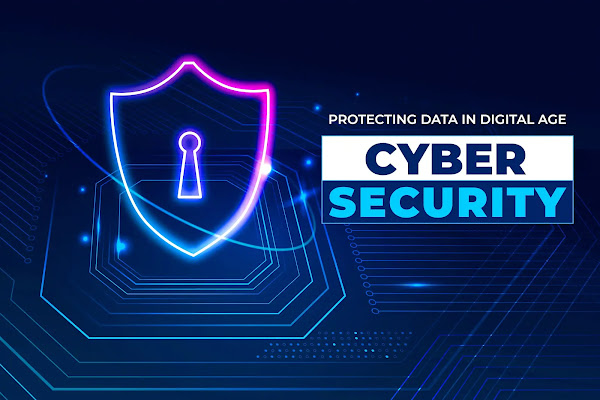Cybersecurity: Protecting Your Business and Personal Data in the Digital Age
The digital age has brought with it many advantages and opportunities for individuals and businesses alike. However, it has also created new challenges, particularly in the area of cybersecurity. Cybersecurity refers to the protection of information and data from theft, damage, or unauthorized access. With the increasing use of the internet, mobile devices, and cloud computing, it is more important than ever to understand and implement best practices for cybersecurity.
Here are some of the most important reasons why you should prioritize cybersecurity for your business or personal life:
- Protecting sensitive information
- Maintaining the integrity of your data
- Protecting your business from cyberattacks
- Complying with legal and regulatory requirements
One of the most important reasons for prioritizing cybersecurity is to protect sensitive information, such as financial and personal data. This information can be used for identity theft, financial fraud, or other malicious purposes. By implementing effective cybersecurity measures, you can help prevent unauthorized access to your sensitive information and reduce the risk of it being used for malicious purposes.
Cybersecurity is also important for maintaining the integrity of your data. This means ensuring that your data is accurate, consistent, and secure. If your data is compromised or altered, it can lead to significant problems, including legal issues, loss of reputation, and financial loss. By implementing strong cybersecurity measures, you can help ensure the integrity of your data and reduce the risk of it being altered or corrupted.
Cyberattacks can have a devastating impact on businesses, leading to financial loss, reputation damage, and loss of sensitive information. By prioritizing cybersecurity, you can help reduce the risk of your business falling victim to a cyberattack. This includes implementing firewalls, antivirus software, and other security measures to prevent unauthorized access to your systems, as well as regularly monitoring your systems for potential threats.
Many businesses are subject to legal and regulatory requirements for protecting sensitive information. By prioritizing cybersecurity, you can help ensure that you are meeting these requirements and avoiding the risk of fines, legal action, or other consequences.
Now that we've established the importance of cybersecurity, let's take a look at some of the best practices for protecting your business and personal data in the digital age:
- Use strong passwords and multi-factor authentication: One of the simplest and most effective ways to improve your cybersecurity is to use strong passwords and multi-factor authentication. Strong passwords should be at least 8 characters long, include a mix of upper and lower case letters, numbers, and special characters, and should not include easily guessable information, such as your name or date of birth. Multi-factor authentication adds an extra layer of security by requiring a second form of authentication, such as a code sent to your phone, in addition to your password.
- Keep your software and systems up to date: Another important cybersecurity measure is to keep your software and systems up to date. This includes updating your operating system, applications, and security software on a regular basis. By doing this, you can help protect against known vulnerabilities and ensure that you have the latest security features and patches.
- Regularly backup your data: Regularly backing up your data is another important cybersecurity measure. This helps ensure that you can recover your data in the event of a cyberattack or other data loss event. There are many different ways to backup your data, including using an external hard drive, cloud storage, or a dedicated backup service.
- Be vigilant against phishing scams: Phishing scams are a common type of cyberattack that attempt to trick you into giving up sensitive information, such as your password or financial information. To protect against phishing scams, be wary of emails or messages that ask for sensitive information, even if they appear to be from a trusted source. Additionally, never click on links in emails or messages from unknown sources.
- Use antivirus software and firewalls: Antivirus software and firewalls can help protect your systems from malware, viruses, and other types of cyberattacks. Make sure that your systems are equipped with up-to-date antivirus software and firewalls, and regularly scan your systems for potential threats.
- Educate your employees: Your employees play a critical role in protecting your business and personal data. By educating them on best practices for cybersecurity, such as using strong passwords, avoiding phishing scams, and being vigilant when using the internet, you can help reduce the risk of a cyberattack.
- Implement security measures for mobile devices: With the increasing use of mobile devices, it is important to implement security measures to protect your business and personal data. This includes using a password or PIN to lock your device, regularly backing up your data, and using secure networks when accessing sensitive information.
By following these best practices for protecting your business and personal data in the digital age, you can help reduce the risk of a cyberattack and ensure that your sensitive information is secure.

